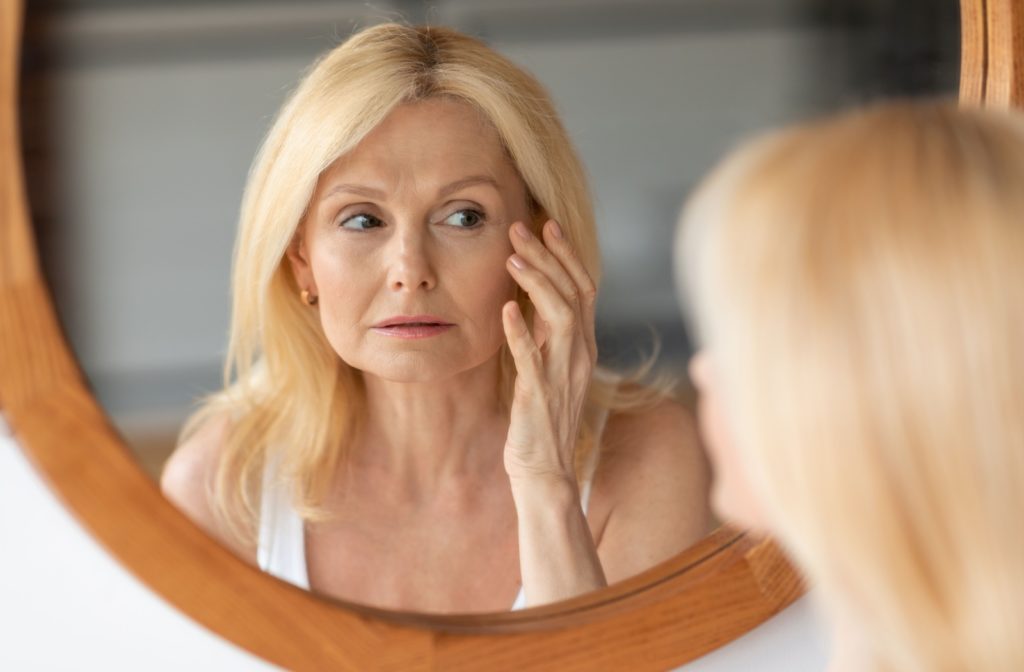Waking up to crusty eyes might not be the most pleasant way to start your morning. Yet, for most people, it is a normal body reaction. Crusty eyes are typically due to a buildup of mucus, tears, and debris that accumulate during sleep as part of the eyes’ natural cleaning process. Occasionally, recurring or excessive eye crust could signal an underlying issue.
We recommend attending regular eye exams to help maintain good eye health. At Hercules Optometry, our friendly staff would happily help you schedule your next visit!
What Causes Crusty Eyes?
Have you ever wondered what causes that crustiness in the corner of your eyes in the morning? Here are a few of the likely culprits:
The Natural Cleaning Process
During the day, the eye constantly produces tears to keep them clean and hydrated. Blinking helps spread these tears over the surface of your eye while pushing out dirt and debris.
The process is different when you are asleep as blinking stops and the production of tears slows. Therefore, more mucus and debris are able to collect in the corner of the eyes, which leads to the formation of the crust experienced in the morning.
Dry Eyes
If you’ve often noticed more crust than usual or are experiencing some discomfort when waking up, dry eyes could be to blame. Dry eyes are a common condition, generally due to reduced tear production, which can lead to a thicker buildup of eye crust overnight.
If you spend long hours staring at a screen and live in a dry and windy climate, you might be at a higher risk of experiencing dry eyes.
Allergies
Environmental allergies such as pollen or dust might irritate your eyes, increasing mucus production. You often wake up with red, itchy, or watery eyes, alongside crustiness. It might be due to allergies.
Eye Infections or Conditions
Several eye conditions and infections may lead to crust formation, including the following:
- Conjunctivitis (Pink Eye): The result of bacteria and viruses, often accompanied by redness and excessive discharge.
- Blepharitis: A condition when the eyelids become inflamed, leading to crusty debris along the lash line.
- Styes: A swollen lump or lumps near the edge of your eyelid can produce extra discharge as they heal.
- Blocked tear duct: A blocked duct prevents normal eye drainage, which can lead to more eye crust in the morning.
If you notice that the crust is yellow or green or causing discomfort, it is best to book an appointment with your eye doctor to figure out what might be going on.

How to Reduce Morning Eye Crust
Maintain Good Eye Hygiene
Start your evening routine by washing your face to remove dirt, makeup, and allergens. This can help reduce crust building up in the morning. If you notice any accumulated debris, we recommend using a warm washcloth to gently clean your eyelids throughout the day.
Tips to Maintain Good Eye Hygiene:
- Take our contact lenses before bed
- Try and avoid touching your eyes with your hands, or wash your hands first if you must
- Try to carefully remove all makeup around the eye before bed using removal wipes or cotton pads
- Stay hydrated by drinking enough water
Use Artificial Tears
Over-the-counter artificial tears can be a potential solution for relieving dry eyes. They work by keeping your eyes well-hydrated and comfortable, especially at night, helping provide much-needed moisture and relief from irritation.
Allergy Treatment
If allergies are causing your morning crust, consider over-the-counter allergy medications or antihistamine eye drops to help reduce irritation and mucus production. We recommend speaking with your doctor to find the product that is right for you.
Clean Your Contact Lenses
Those who wear contact lenses can be an excellent place for bacteria and debris to rest, making it important to keep them clean. Always try to clean your lenses thoroughly or replace them as recommended.
When Should You See an Eye Doctor?
While in many cases, crusty eyes are normal and don’t require special treatment. It’s important to book an appointment with your eye doctor if you notice any of the following symptoms:
- Excessive crusting that causes blurred or strained vision
- Discomfort, redness, or swelling around the eyes
- A sudden change in the color or consistency of the discharge (crust)
- Increased sensitivity to light
A comprehensive eye exam can help uncover and address these issues. Don’t hesitate to book yours today.
Start Your Day With Clear Eyes!
Managing crusty eyes can be as simple as maintaining good habits, treating dryness, and monitoring for any signs of underlying conditions. While most morning crust is harmless, it never hurts to consult a professional for peace of mind and clearer mornings ahead.
Book an appointment with Total Vision Hercules today if you need advice, personalized eye care, or a checkup on your eye health!



